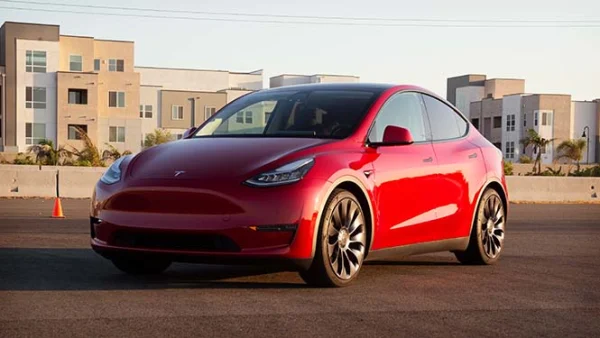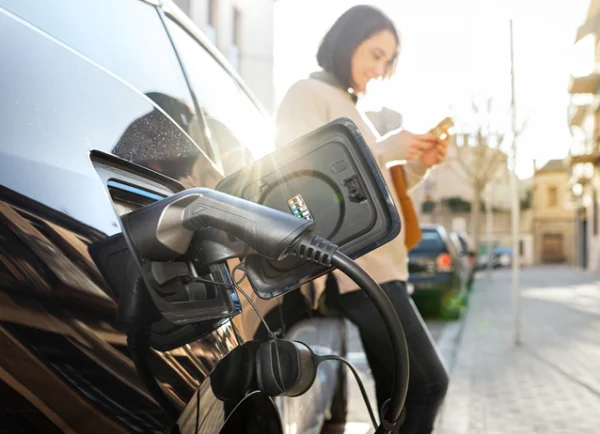
Electric vehicles
An electric vehicle, or EV, runs solely on the electricity supplied by the on-board battery, resulting in zero tailpipe emissions.
EVs have become very popular in recent years, thanks to the success of Tesla’s vehicles. Along with zero emissions, EVs also have a quiet ride thanks to the lack of engine noise, and offer the convenience of charging at home.
Best electric vehicles
Check out the 10 most popular used electric vehicles with CarMax customers.
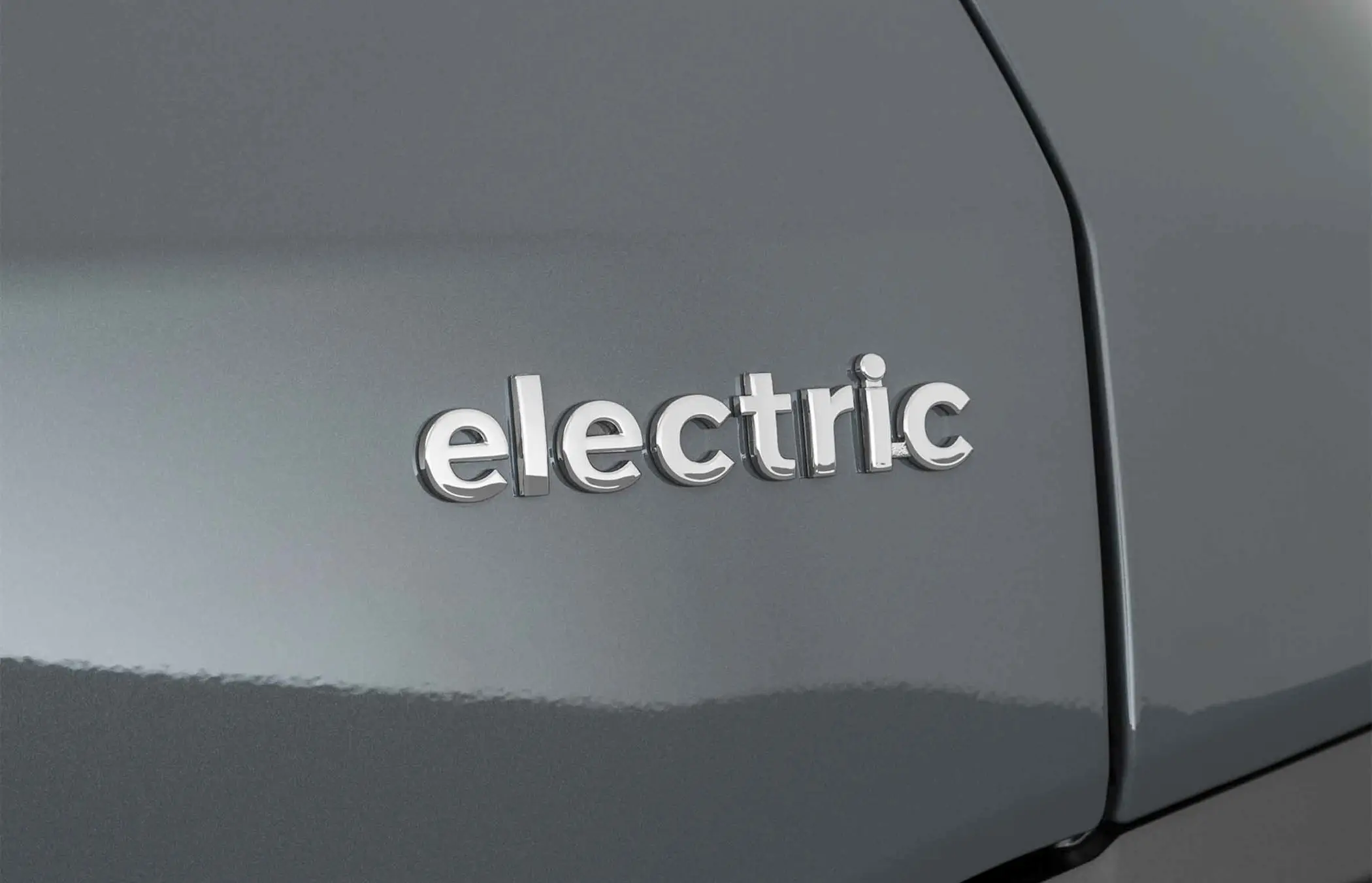
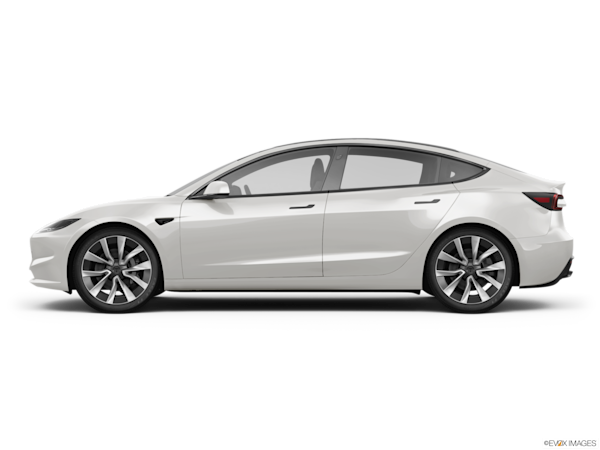
1. Tesla Model 3
CarMax owner rating
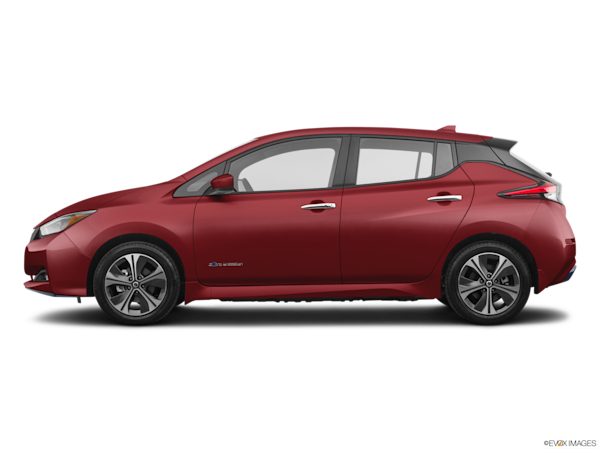
2. Nissan Leaf
CarMax owner rating
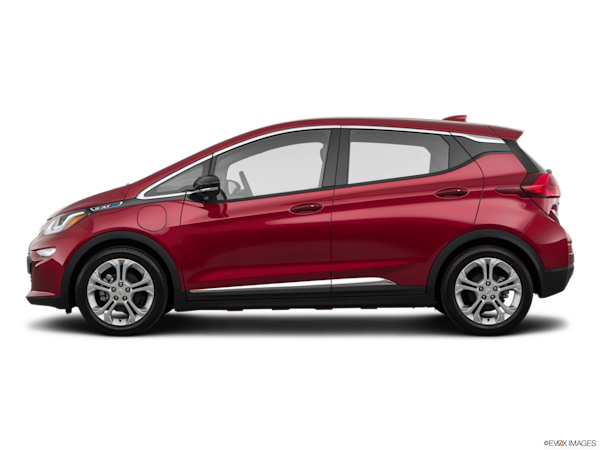
3. Chevrolet Bolt EV
CarMax owner rating
Pros
Impressive range
Spacious cabin
Swift acceleration
Cons
Interior lacks refinement
Small front seat cushions
Rough ride on bumpy roads
Best electric vehicles under $25,000
We've compiled a list of the 10 most popular used electric vehicles under $25,000 with CarMax customers.


1. Nissan Leaf
CarMax owner rating

2. Chevrolet Bolt EV
CarMax owner rating
Pros
Impressive range
Spacious cabin
Swift acceleration
Cons
Interior lacks refinement
Small front seat cushions
Rough ride on bumpy roads
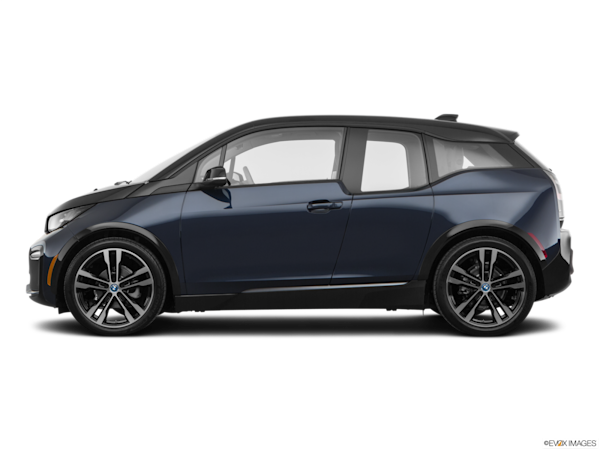
3. BMW I3
CarMax owner rating
Pros
Agile and engaging handling
Loaded with tech features
Stylish and sleek interior
Cons
Reverse-hinged rear doors are awkward to use in parking lots
Cargo space could be bigger
Only single-zone climate control
Research fully electric vehicles
FAQs about electric vehicles
With the proper cable (typically included with the car), you can plug into a common 120V power outlet and gain 3-5 miles of range per hour charged. If you drive 20-30 miles per day, you can plug your BEV in each night and regain the range used during the day.
If you want a faster charge you can explore upgrading to a 240V system, which typically provides 10-20 miles of range per hour charged. For any modifications to your home’s power system, consult an electrician to add 240V outlets, installed charging boxes, and ensure your home can support the proper amperage.
A variety of factors can contribute to the longevity of an electric vehicle's battery, though some contributors are age of the battery, temperature exposure over time, number of charging/discharging cycles, and times the battery has been fully discharged.
The three most common charging plugs that have been offered on BEVs and PHEVs are as follows:
CCS / J1772 – The CSS / J1772 plug has been the most common in North America and had been the market standard until 2023. It has two variations, the standard J1772 plug with 5 pins that supports Level 1 and 2 charging, or the enhanced CCS (Combined Charging System) plug that adds 2 pins (for 7 total) and supports DC fast charging.
NACS – While used only by Tesla until 2023, most automakers have announced they’ll switch future models sold in the US to use NACS (North American Charging Standard). The NACS plug is smaller than the CCS and, for some, easier to handle.
CHAdeMO – The “Chad Mo” plug is a Japanese-market standard and was used on early BEVs/PHEVs like the Nissan Leaf and Mitsubishi Outlander PHEV, though both automakers have said they'll move to other standards in North America.
The CCS, NACS, and CHAdeMO all support DC fast charging; however, when using a public fast charger you’ll need to find one that has the appropriate plug for your vehicle.
Charging costs vary based upon time, place, state of charge, and total battery size; however, it's typically cheapest to charge at home than through third-party fast chargers.
You can estimate the cost to charge a full electric vehicle in your area with our EV charging cost calculator.
EV battery life depends on many things, including the make, model, use, condition, and maintenance of the vehicle. The battery will experience some degradation over time (just as internal combustion engines experience some degradation as they age); however, a majority of electrified vehicles on US roadways are younger than 8 years so we don’t yet fully know.
The US government mandates manufacturers provide warranties for the batteries in full EVs, PHEVs, and HEVs for 8 years or 100,000 miles, whichever happens first (you can read more on the EPA’s website).
There are three primary types of cars and trucks with electric power:
HEV - Hybrid Electric Vehicles (commonly 'hybrids')
HEVs feature a conventional internal combustion engine (ICE) powered by gasoline combined with a supplemental battery that doesn't need to be plugged in. The Honda Insight and Toyota Venza are examples of HEVs.
PHEV - Plug-In Hybrid Electric Vehicles (commonly 'plug-in hybrids')
PHEVs are similar to HEVs with a conventional engine and electric motor but have two primary differences: longer EV-only range and can be plugged in to recharge their battery (but most don't have to be – the battery can recharge as a typical HEV does).
PHEVs are well liked because for most of their driving they can operate in EV-only mode, but can engage the ICE when driving longer distances or needing more power. The Ford Fusion Energi, which has an EPA-estimated EV-only range of 26 miles for 2019 and 2020 model years, is an example of a PHEV.
BEV - Battery Electric Vehicles (commonly what people mean when they talk about 'EVs')
BEVs use a battery and electric motor are used for propulsion instead of a conventional internal combustion engine (ICE). The Tesla Model 3, Ford Mustang Mach-E, and Volvo XC40 Recharge are examples of BEVs.
There are several benefits to an electric car but for many, they might seem like a big step. Whether you want to live a more green-conscious lifestyle or just want to stop taking frequent trips to the gas station, an electric car is an excellent choice with a variety of options whether you want a sleek luxury, a practical SUV, or a compact for daily driving.
If you're interested in an electric vehicle (EV) and want to keep researching, you're in the right place: here's what you need to know about how to buy an electric car.
Energy must be used to get any vehicle up to speed, and typically that energy comes from either a fuel source or battery pack in your car.
With a traditional braking system, pushing your foot on the pedal triggers the brake components to compress together, creating resistance to slow your vehicle's wheels. Any energy you had used to get up to speed is then lost as heat.
With a regenerative braking system, your wheels are connected to a motor that recaptures some of the energy used to get your vehicle up to speed, which is then converted back to stored power in the battery—hence the name 'regenerative'.
Most electric vehicles, including full EVs, HEVs, and PHEVs, feature both braking systems and allow you to select whether to use both or only regenerative braking. Because most regenerative braking systems kick in immediately after releasing your accelerator pedal (no need to apply the brake pedal) you can drive while using your traditional brakes significantly less often; this is commonly called one-pedal driving.
Understanding battery charging
Making the switch to an electric car, truck, or SUV can seem intimidating with the avalanche of new lingo. But once you learn how it all works, an EV might actually simplify your life. Edmunds experts runs through what you need to know about electric car chargers and charging your car.
Learn more about electric vehicles
Ready to find your EV?
Research battery electric vehicles
Research vehicle specs, features, and EPA-estimated battery range across trim level, body style, and motor configuration
Research other alternative fuel options
We hope you found this information helpful. This content is intended to inform and is not meant to provide legal, financial or investment advice. We make every effort to provide accurate information, but please verify before transacting and consider talking to a qualified professional about your unique circumstances.
Statements of fuel economy or EV range are based on EPA and other third-party estimates for vehicles when new. Fuel economy and EV range will degrade with time and vary based on age, driving conditions, vehicle history, and other conditions. See fueleconomy.gov for more info.
Editorial content contained on this page comes from Edmunds.com, Inc., a subsidiary of CarMax Enterprise Service, LLC, and information related to featured vehicles comes from third-party sources, including manufacturer information. Product and company names may be trademarks or registered trademarks of third-party entities. Use of them does not imply any affiliation with or endorsement by these entities. By clicking on any video links, you will be taken to a third-party site maintained by YouTube, Inc.





